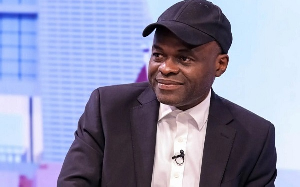The Minister of Health, Hon. Sherry Ayittey has lauded the move by the Mental Health Authority(MHA) to clear vagrant mental health patients from the country's streets for treatment and subsequent integration with their families.
The Minister has also promised to provide an ambulance to support and facilitate the operation when it kick starts in the next couple of days.
“The Minister of Health is excited about this and has promised an ambulance to support and facilitate it,” stated Dr. Akwasi Osei, Acting Chief Executive Office of the MHA at a Meeting with Mental Health Alliance for Change in Accra recently.
The meeting was organised by BasicNeeds, a civil society organisation championing the rights of mental health patients, in partnership with the Mental Health Society of Ghana (MEHSOG). The event sought to clarify the proposed 'Operation Clear the Streets,' an exercise meant to round up vagrant mental patients for treatment and unite them with their families.
Some individuals and organisations have raised issues about the proposed operation, arguing that it would amount to a violation of the human rights of mental patients as their consent had not be sought about giving them treatment.
However, Dr. Osei in a presentation rebuffed their argument, contending that the Authority had the legal basis to implement such an exercise.
He indicated that: “ The MH Act 846 of 2012, Section 73, and Subsection 1-7 on 'Mentally ill found in public places allows us, in fact, mandates us to take these patients to 'a place of safety' and treatment, on Certificate of Urgency.”
The move, he maintained, was similar to 'Sectioning' of patients in UK and elsewhere who require mandatory treatment. He added that mental patients were not found on the streets of London, except destitute or homeless.
According to Dr. Osei, “in the unlikely event of anybody, patient or relative, feeling his rights have been abused in the process, one can appeal to the Mental Health Tribunal, when established in the next few months, until then to CHRAJ”
He added: “Insistence that a vagrant psychotic, who lives in his own world, should give informed consent is standing logic on its head and does not show enough appreciation of the nature of mental illness
“Can a patient who has collapsed in diabetic coma give informed consent before he is sent to the hospital for treatment?” he quizzed.
He further stressed that 'Mental disability' was not the same as physical disability where the latter was in full possession of his mental faculties.
The Executive Director of BasicNeeds, Mr Bedimak Peter Yaro, encouraged participants to take the issue of mental health serious as there was hope in future because the group had enjoyed a lot of media support over the past few years.
The meeting brought together civil society groups working on mental health issues across the country, representatives of the Social Welfare Department and the media.
Health News of Tuesday, 13 May 2014
Source: Public Agenda













